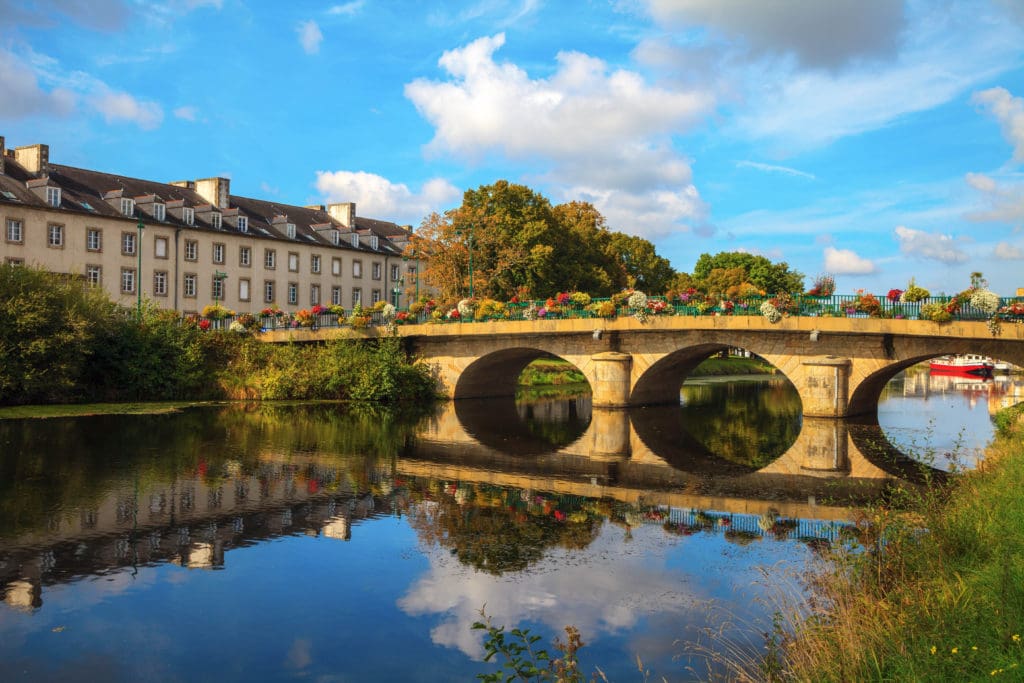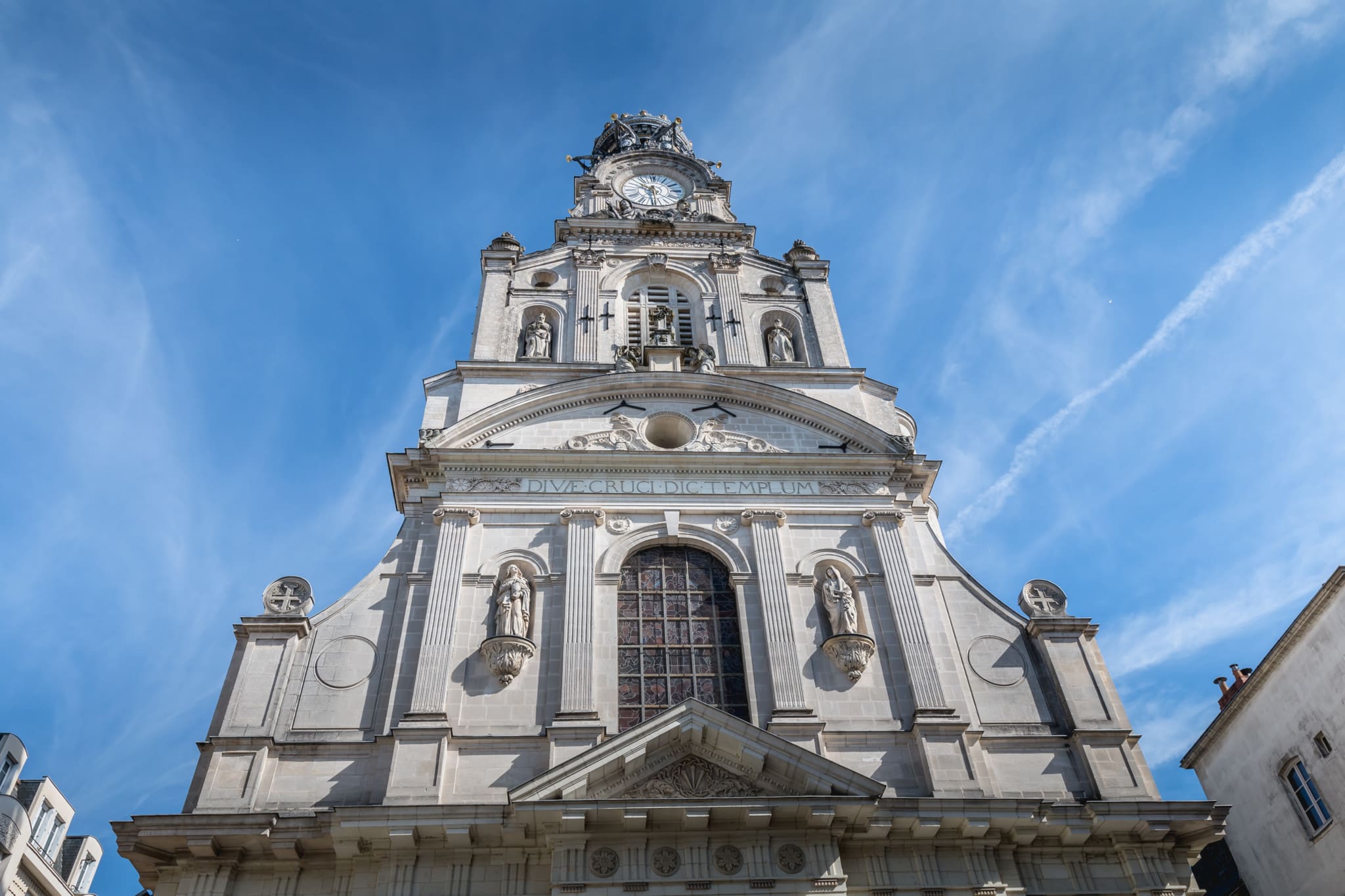The news about two Catholic nuns having to leave Nantes’ city center after years of growing insecurity is just one more indication of how badly things have gone during the last decade in this formerly peaceful provincial French city of 300,000 inhabitants — 1 million if we include the surrounding metropolitan area — lying next to Brittany, to which it belongs historically and culturally.
“Just yesterday (on Tuesday, Feb. 28, ed.), during my teaching in the church, we had to ask the audience to expel a person from the street who had come in drunk. And it smelled like cannabis in front of the church. It’s a sad reality of our daily lives,” one of the two nuns told French Christian daily “La Croix.”
The two announced their decision to move to another city in a letter published on the parish’s website last Sunday.
Sister Marie-Anne Leroux, 56, and Sister Agathe Dutrey, 44, belong to the Fraternity of Benedictine Apostolic Sisters. In their letter to parishioners, they explain their decision with the climate of growing insecurity in downtown Nantes — a description that many French people throughout the country would say reflects their own experience as well.
[pp id=45951]
As a local center-right opposition councilor told reporters from the weekly “Valeurs Actuelles” in an article that was published under the title “Nantes, a lost territory of the Republic” last September, the number of crimes and the level of violence in Nantes do not differ much from other French cities of that size. However, what is shocking is the metamorphosis this provincial city has gone through, with a sudden degradation of the situation during the past decade.
Two factors have led to this situation: uncontrolled immigration, with a growing number of “unaccompanied minors,” i.e., of illegal immigrants who claim to be under 18, along with an unusual concentration of radical leftist organizations, some of them with violent activists who have been tolerated or sometimes even encouraged by the authorities. This increased presence of the radical Left in Nantes dates back to the protests against the construction of an airport in nearby Notre-Dames-des-Landes in the early 2010s.
The city’s mayor, Johanna Rolland, was first elected in 2014. Since then, she has also been presiding over Nantes’ metropolitan area and serves as the French Socialist Party’s first deputy secretary. Her majority in the city council consists of a coalition of members of the Socialist Party, the Communist Party, the Green Party, and other smaller left-wing parties.
[pp id=32844]
In spite of rising insecurity under her rule, some councilors belonging to her majority have participated in anti-police protests.
With a pro-immigration mayor and city council and with the presence in the city of many left-wing NGOs, including some which are active in the business of welcoming illegal immigrants, Nantes is among the French cities where the share of immigrants in the overall population has been increasing the fastest, overpassing the 10 percent mark in 2018 in a region that traditionally had little industry and very few immigrants.
Additionally, there are thousands of non-European illegal immigrants living in this former capital of the Dukes of Brittany. At some point, a thousand new illegal immigrants were arriving each month, and the City of Nantes, as one of nine founding members of the so-called “National Association of Welcoming Cities and Territories,” which it joined in 2015, is said to be among the top three French cities, after Paris and Calais, in terms of the overall number of illegal immigrants, although the exact figures remain unknown.

The local prefecture is also known for being more willing to deliver residence permits to migrants than others, which makes the city and its surroundings even more attractive to illegal immigrants. The city of Nantes and the Loire-Atlantique department, of which it is the capital, are both among those left-wing, pro-immigration local governments in France, which have donated big sums of money to the SOS Méditerranée NGO for the operation of its Ocean Viking ship transporting illegal migrants across the Mediterranean.
Nantes also has attracted a lot of Roma people coming mainly from Romania, with some 600 families living in slums.
According to police statistics, illegal immigrants account for over 50 percent of street criminality in the city. However, when asked by the media, the city’s mayor insists that the rise in criminality in Nantes is mainly due to the development of drug-trafficking networks and that this is a nationwide problem, not one that is linked to her management.
[pp id=53594]
In the letter announcing their departure, Sister Marie-Anne and Sister Agathe, an author of songs and tales for children, quoted the manager of a security company working for bars and nightclubs who had been cited in the “Ouest France” regional newspaper.
“It was interesting to hear a professional express himself on this subject and to note that we had perceived the same evolution, knowing that we arrived here a little more than eight years ago,” the two Catholic nuns wrote. “He said: ‘About 10 years ago, we started with seven (people); we are about 45 today, in a city where people go out a lot, where the nightlife offerings are enormous. A lot of security businesses have sprung up in the last few years.’ To the question, ‘How have you seen the Nantes nights evolve in 10 years?’, he answers: ‘They have become less safe in the last five-six years (…).'”
The two nuns go on to say:
“For us, over time, it has become too tiring. When we are in the Church of the Holy Cross, we are always on the alert, always ready to react to any lack of respect for the place, the people, or the celebration taking place there. During the day, we sometimes have to intervene in the church in situations of outbursts of violence. This is most often due to people in psychological distress or under the influence of drugs or alcohol, or all of these at the same time. This constant state of alertness prevents us from living prayer as it is lived in our Benedictine vocation. We are not ‘Franciscans of the Bronx,’ and it is not our vocation to be security guards, even if we have taken a few lessons in ‘self-defense.’”
A native of Nantes, TV commentator Philippe Guibert explains that 10 years ago the city was “extremely peaceful and quiet.”
[pp id=52346]
“Drug trafficking has aggravated the situation a lot,” he says, “but there is a second phenomenon that is a little more recent: the presence of illegal immigrants. There is no need to be in denial and pretend this does not exist.”
This sentiment has also been echoed by citizens who have called the city home for years. After two Sudanese immigrants aged 17 and 27 raped a woman in her 40s on the street last September, one long-time resident on RMC radio said, “During the day, Nantes is pure joy; it is one of the most pleasant cities to live in. But as soon as night falls, it’s hell. I’ve seen the degradation as a taxi driver. There are gangs roaming around looking for a lonely person.”
As a university city, Nantes also features its fair share of students, many of who put themselves in vulnerable situations after a night out drinking. Many of them are considered easy prey by criminals, particularly in dark areas where they can be robbed, assaulted, and in some cases, sexually assaulted.
“It is scandalous that they have to move,” said Foulques Chombart de Lauwe, an opposition city councilor from Nantes, while speaking to Le Figaro regarding the news of the Catholic nuns’ departure. While saying this is not a normal situation, majority councilor Gildas Salaün, speaking on behalf of the mayor’s office, could only say that: “it is not our role to comment on this decision, which is theirs.”





